Reading Improvement Normal Vowels Worksheets
5 filtered results
-
From - To
Explore our dynamic "Reading Improvement Normal Vowels Worksheets" designed to enhance early literacy skills. These engaging worksheets focus on the recognition and understanding of normal vowels, providing essential practice for young learners. With a variety of activities, including matching words, filling in missing vowels, and interactive reading exercises, students will gain confidence in their reading abilities. Our resources cater to different learning styles, ensuring that every child can progress at their own pace. Perfect for classroom use or at-home learning, these worksheets are a fun and effective way to support your child's journey to becoming a proficient reader. Start improving reading skills today!
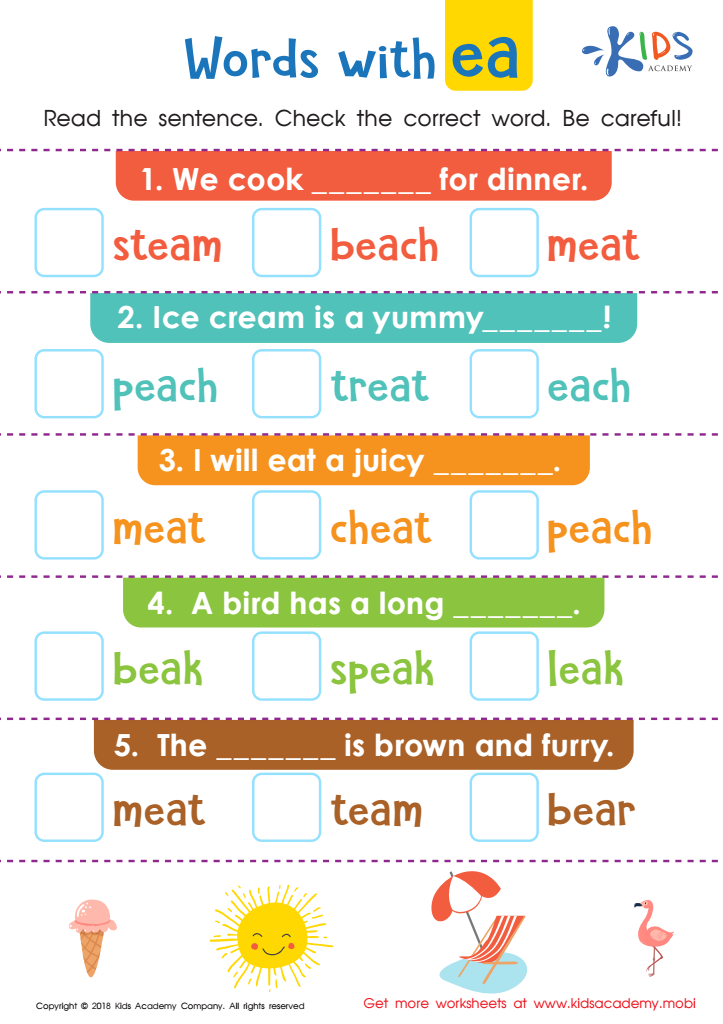

Words with ea Worksheet
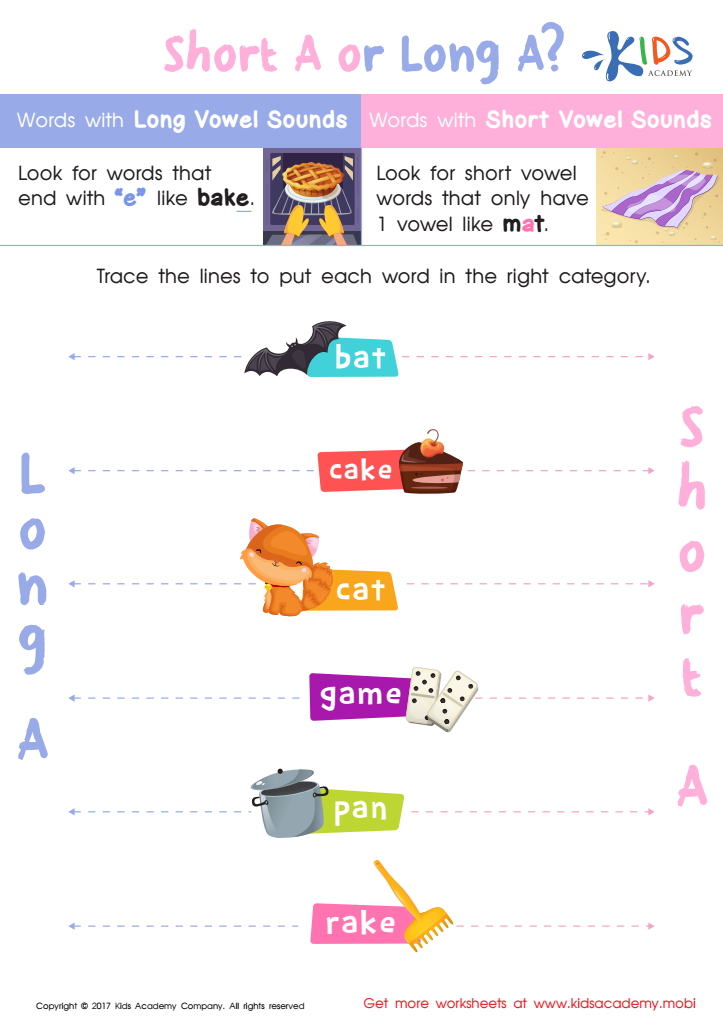

Short /a/ or Long /a/? Worksheet
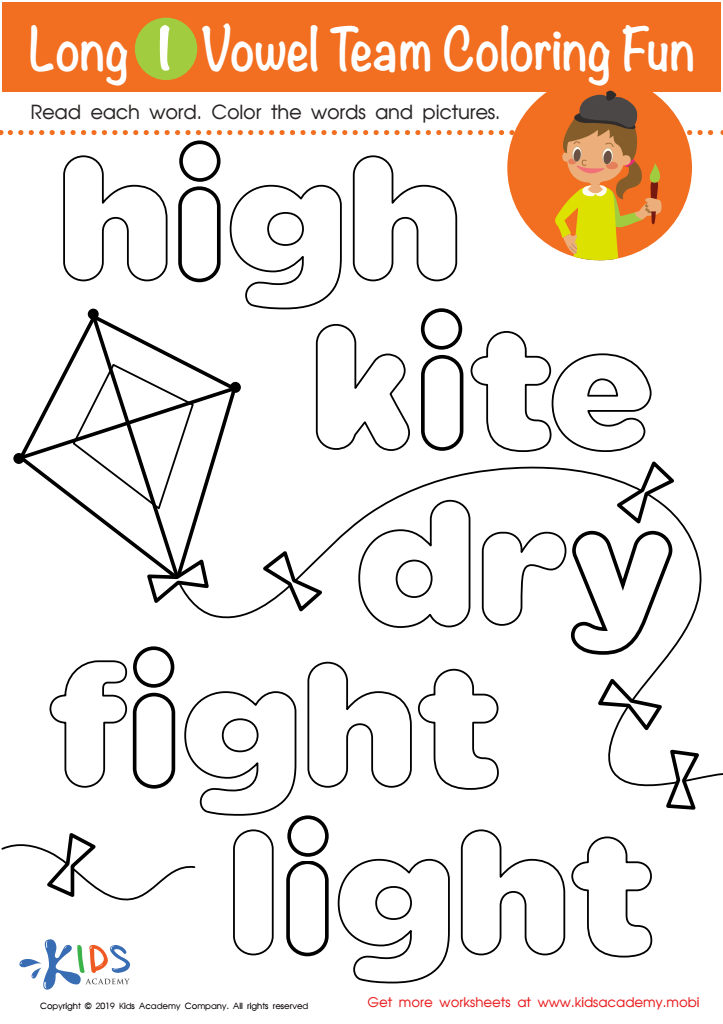

Long I Vowel Team Coloring Worksheet
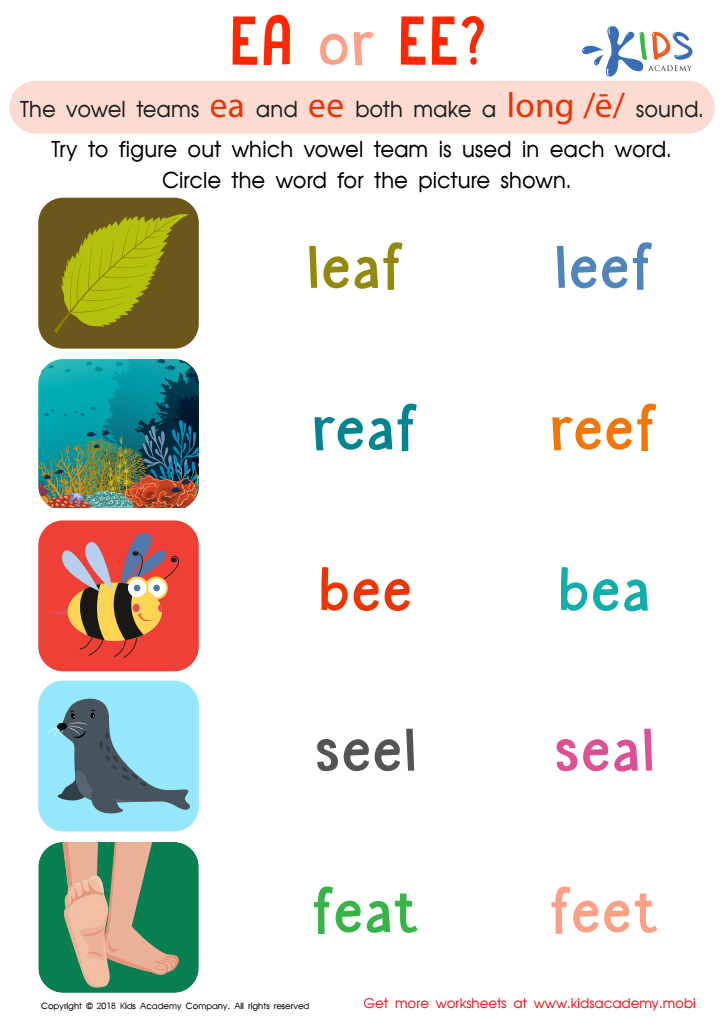

Reading: EA and EE Worksheet
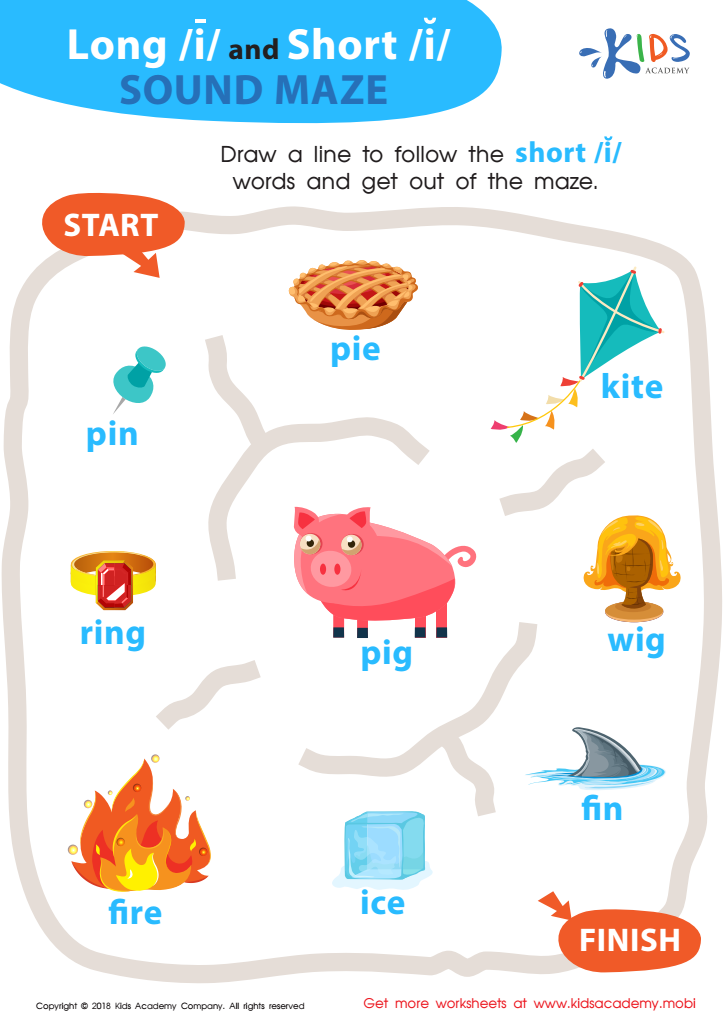

Reading: Long I and Short I Sound Maze Worksheet
Parents and teachers play a crucial role in fostering reading development in early learners, and understanding the importance of reading improvement with normal vowels is essential. Normal vowels—A, E, I, O, and U—form the foundation of word decoding and phonetic skills. By focusing on these vowel sounds, educators and parents can enhance children's phonemic awareness, which is vital for effective reading.
When children master normal vowels, they better comprehend the structure of words, enabling them to progress from simple phonics to more complex language structures. This foundational knowledge promotes improved reading fluency. Furthermore, understanding these sounds can help children develop their spelling and writing skills, making it easier for them to communicate their thoughts and ideas effectively.
Investing time in reading improvement strategies centered around normal vowels encourages a love for reading, builds vocabulary, and fosters critical thinking skills. It may also bridge gaps for struggling readers who need extra support. In a world where foundational literacy skills dramatically impact academic success, nurturing proficiency in normal vowels is not just an educational concern but a pathway towards empowering children with the tools they need for lifelong learning. Thus, parents and teachers should prioritize reading improvement rooted in vowel mastery.
 Assign to My Students
Assign to My Students










